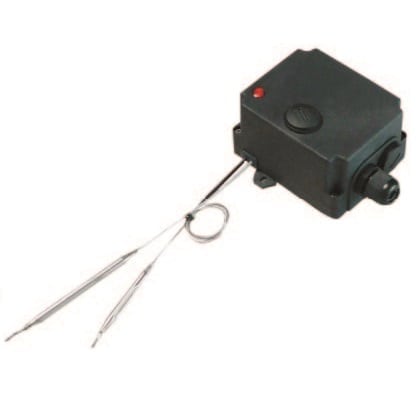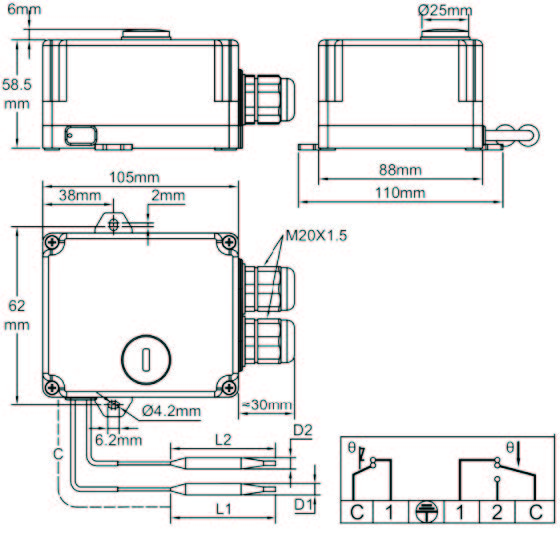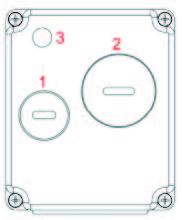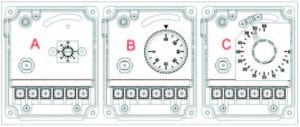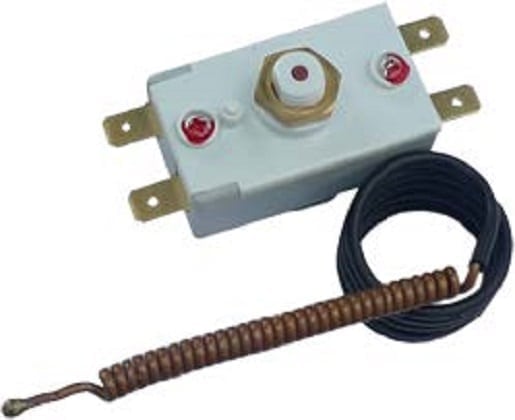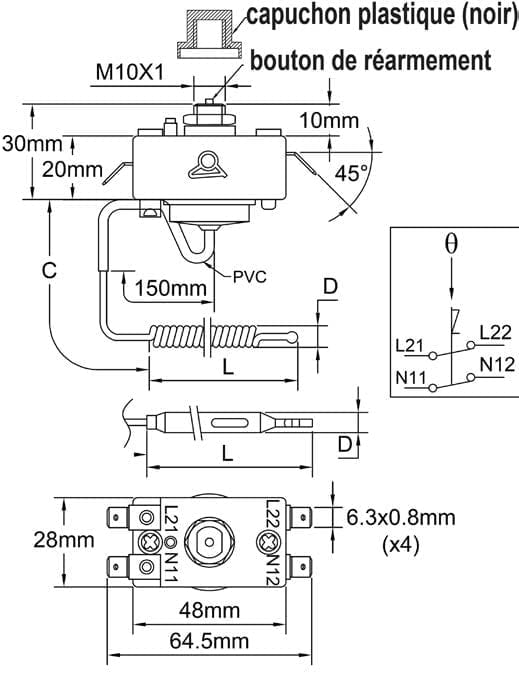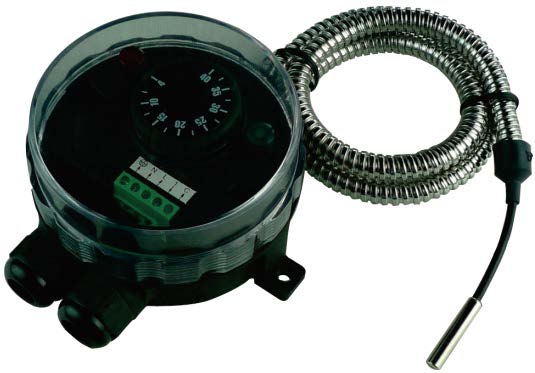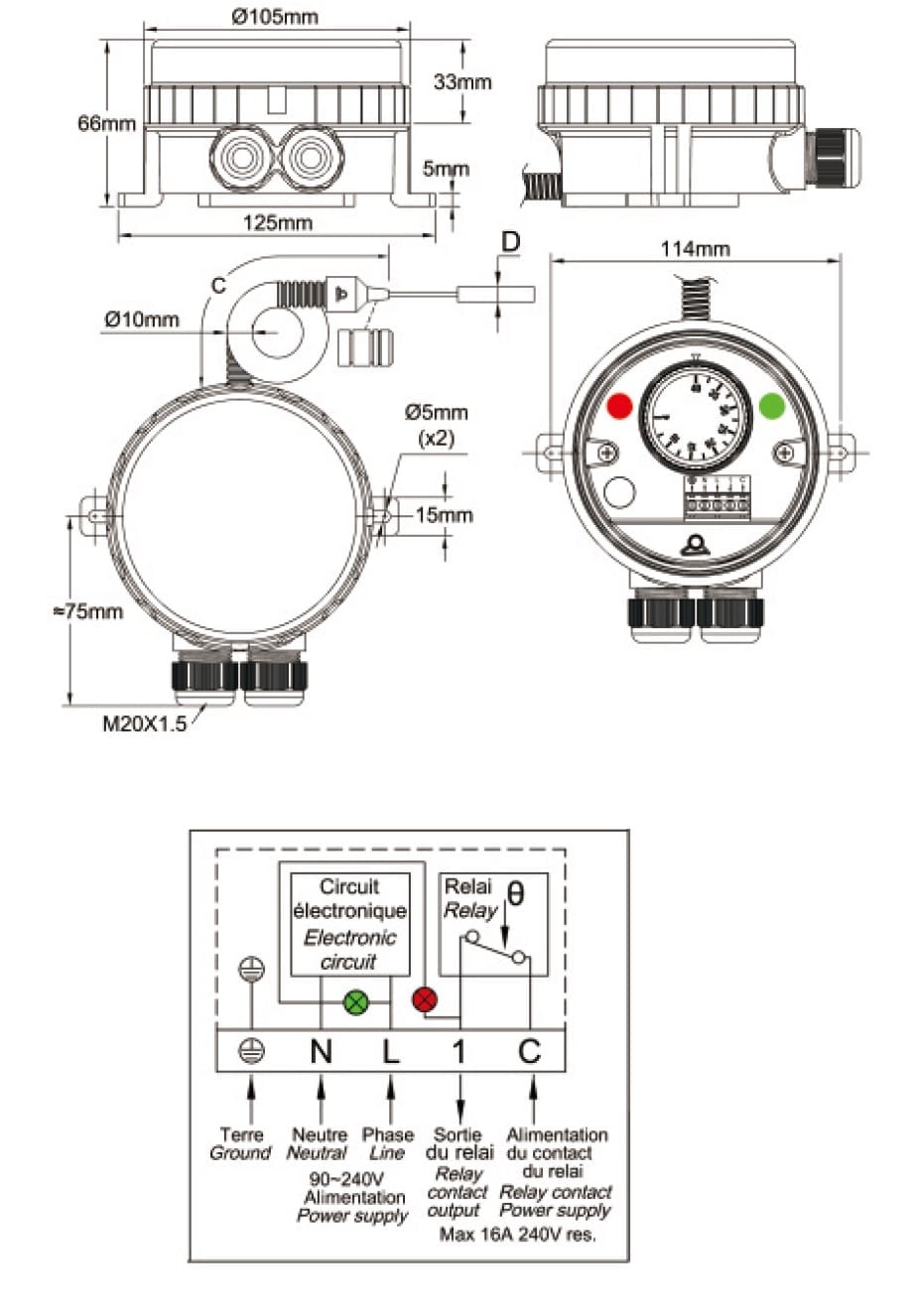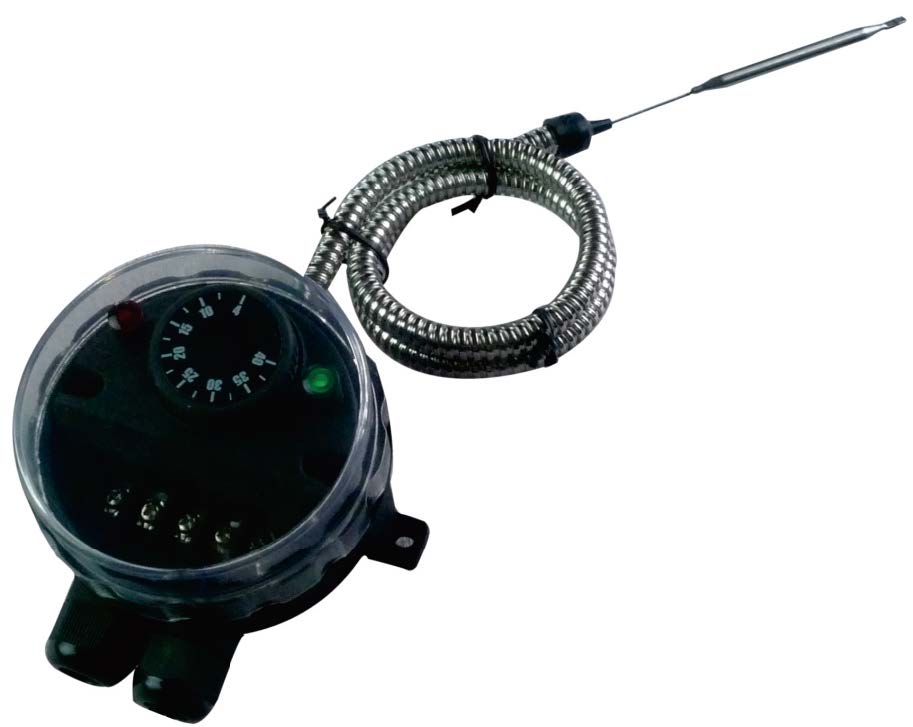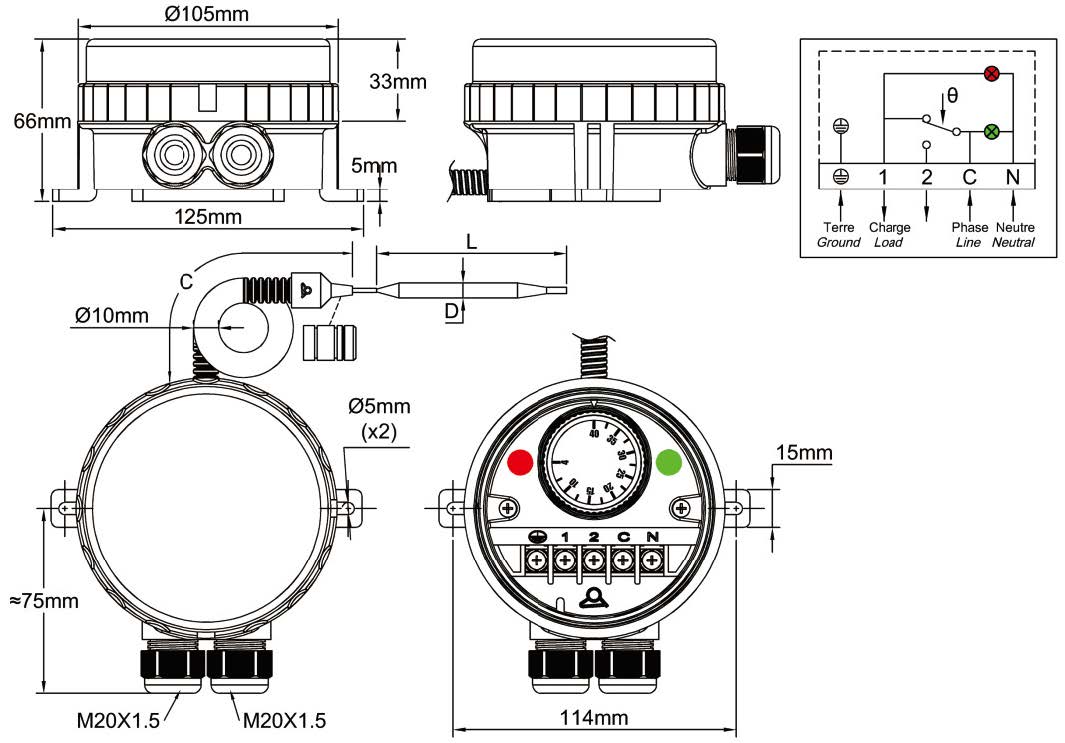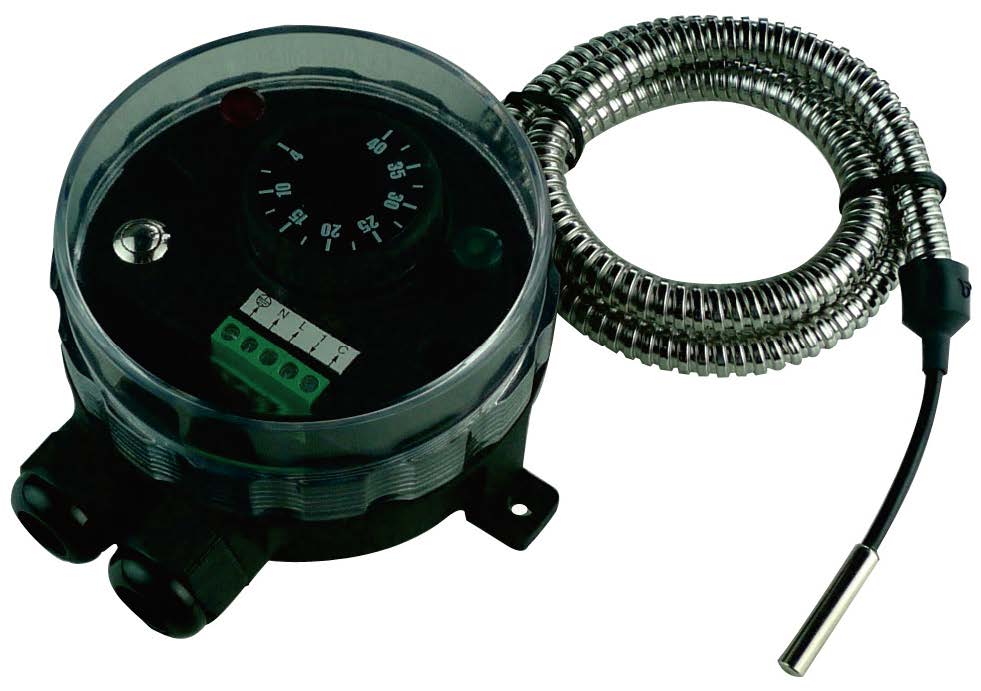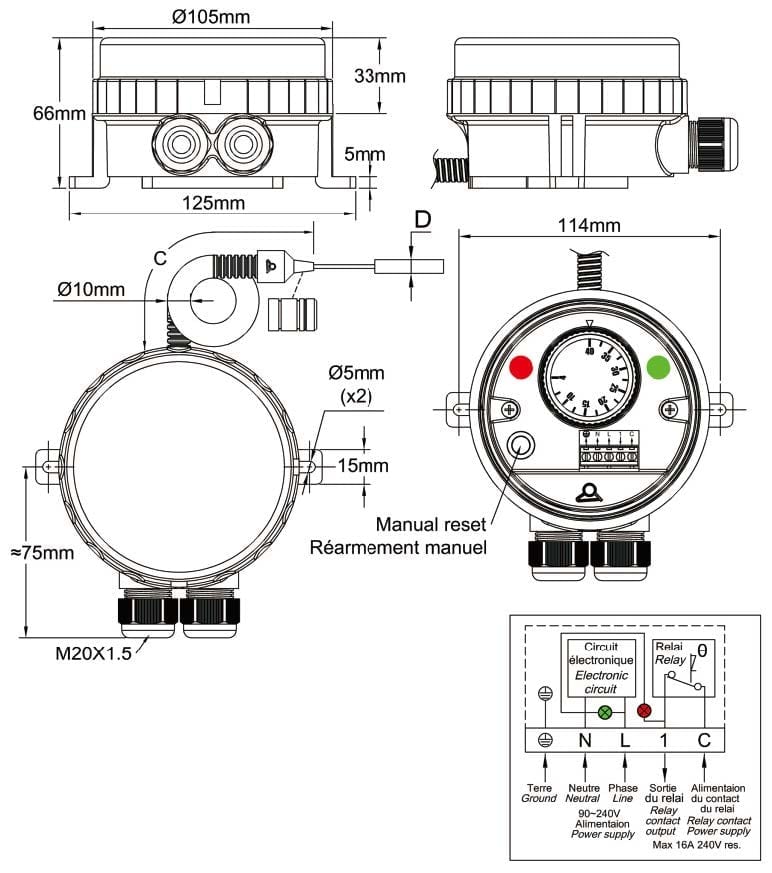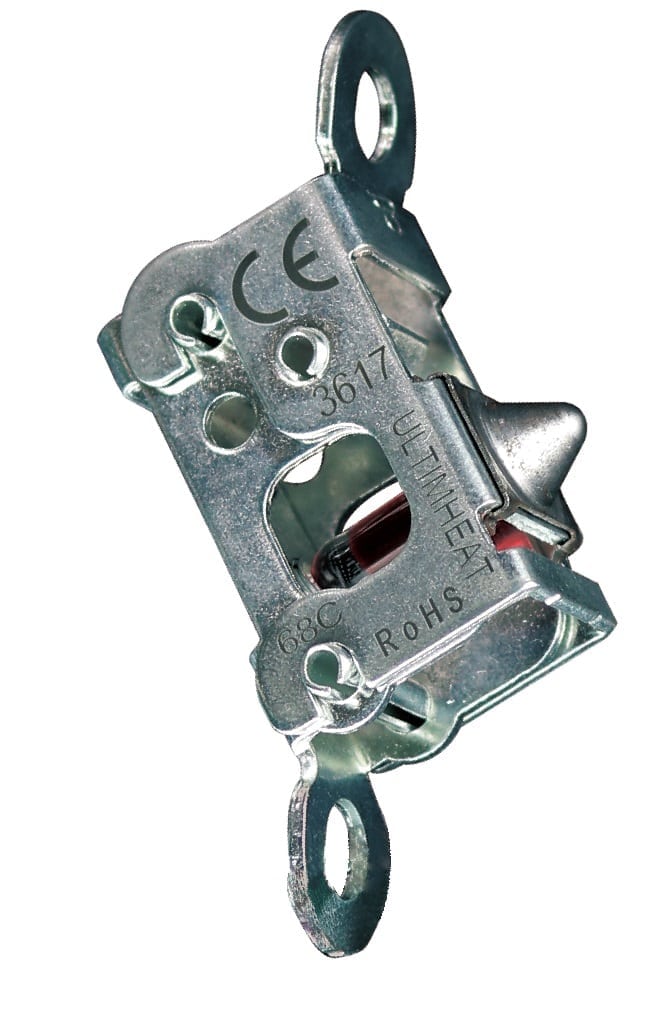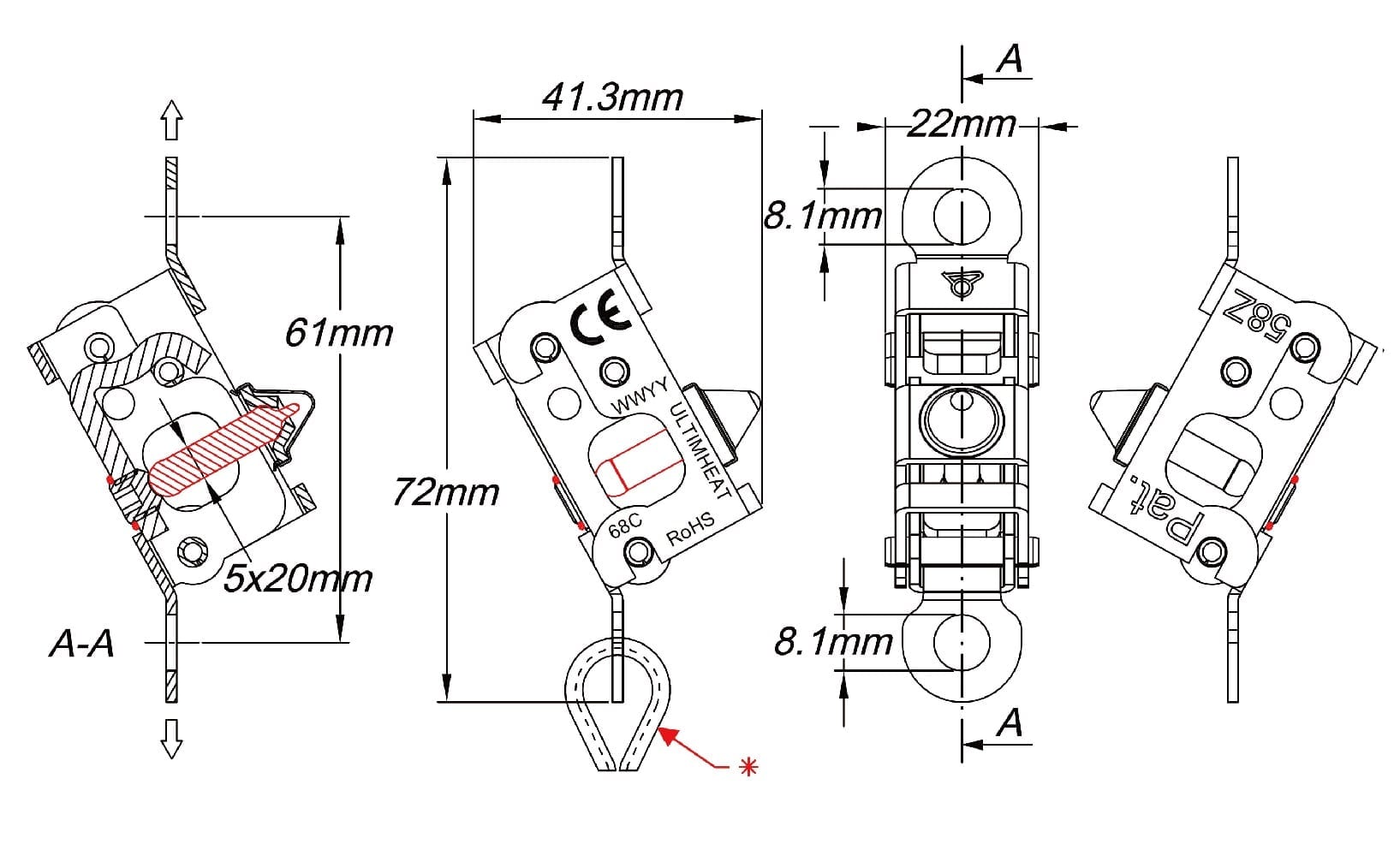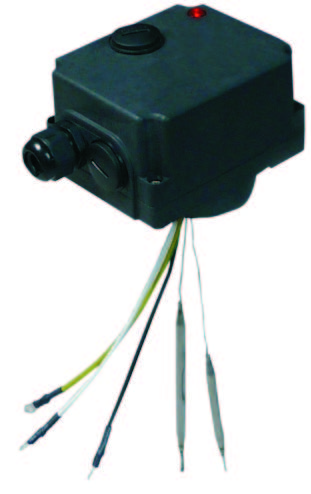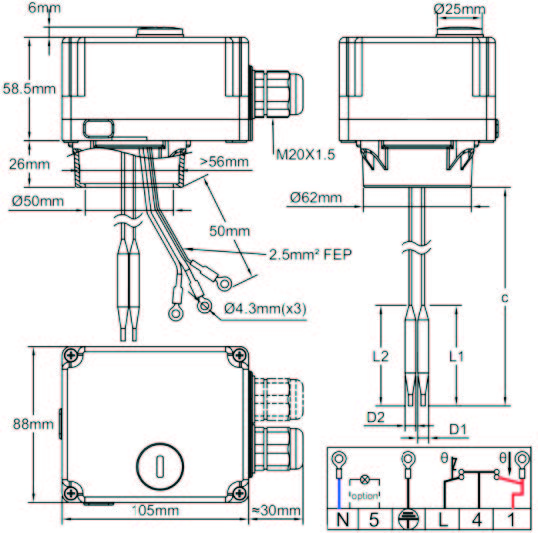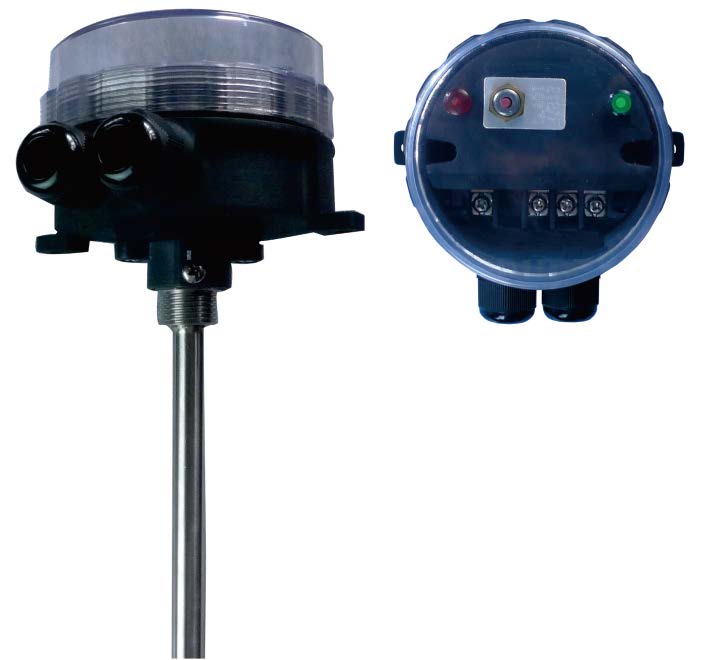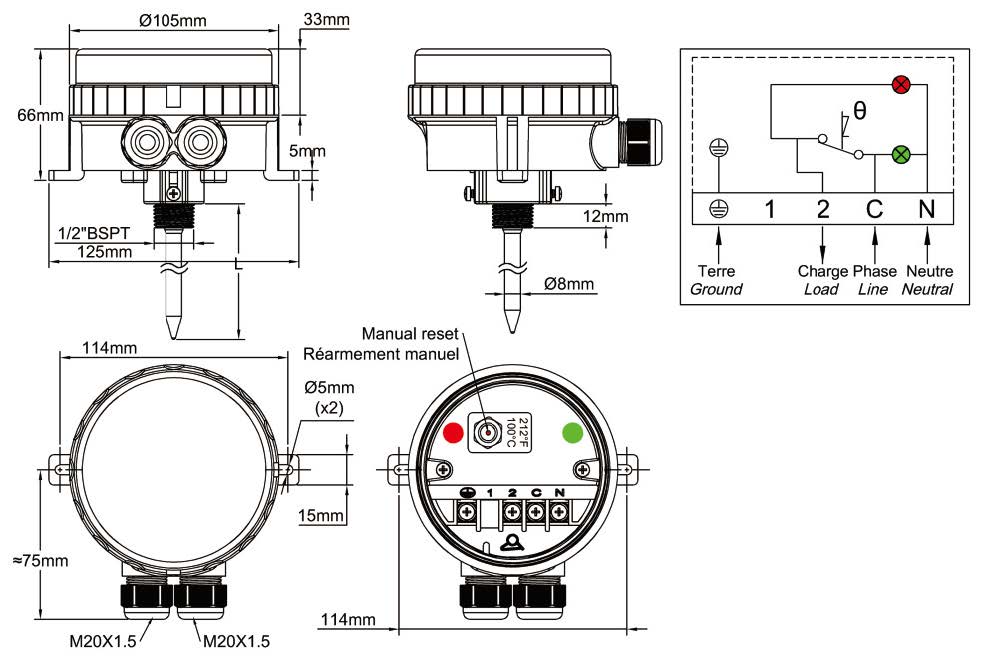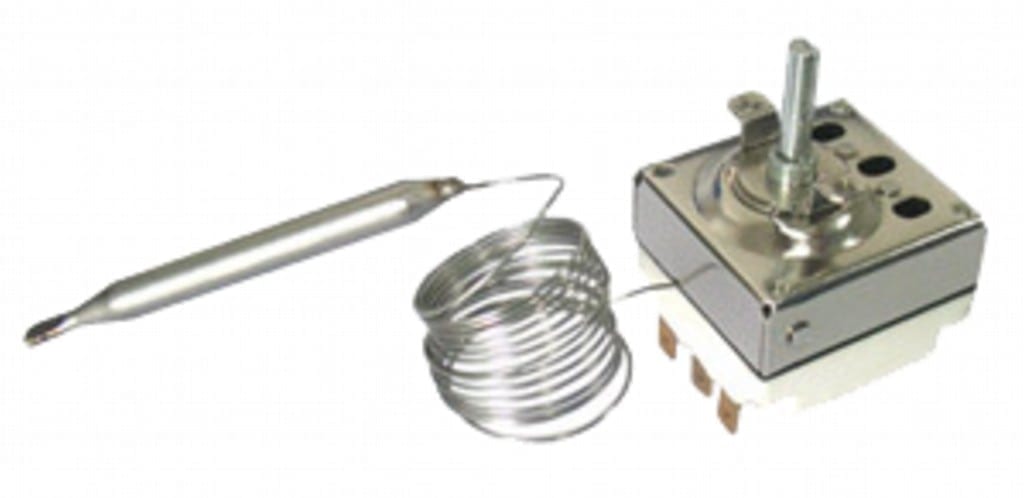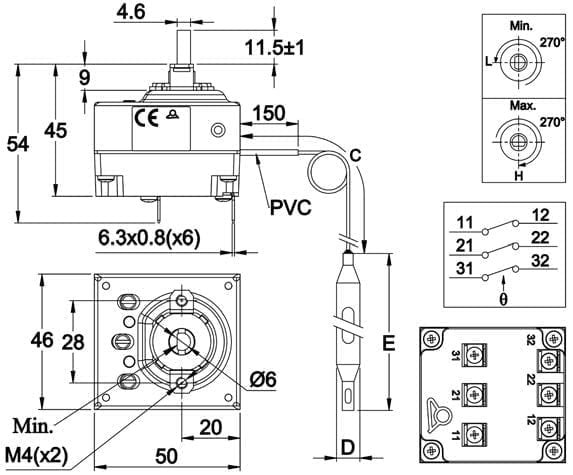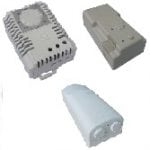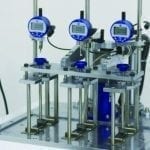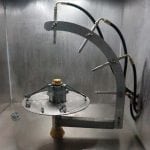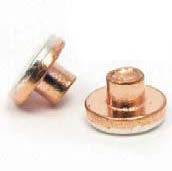Combination of adjustable set point remote thermostat and manual reset high limit, IP54 housing, 105x88x58.5mm
Control sub assembly designed to be used installed on walls, power up to 3500W, 230V, single phase.
| Housing raw material | |
|---|---|
| Color | |
| Ingress protection | |
| Contact Material | |
| Electrical rating | |
| Voltage | |
| Electrical life (cycles at rated value) | |
| Measurement type | |
| Sensing element | |
| Capillary length (mm) | |
| Temperature adjustment range (°C) | |
| Manual reset temperature (°C) | |
| Differential (°C) | |
| Setting adjustment | |
| Rod length (mm) |
| Enclosure | Type | Operation | Contact | Measurement | Ranges °C | Models |
| IP54 | Control | Mechanical | SPDT | Remote | 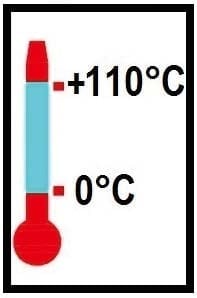 |
Y09 |
|
Material |
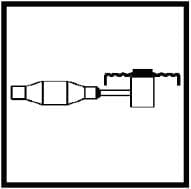 |
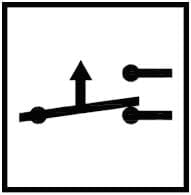 |
 |
|||
|
PC-ABS |
Main applications:
Control sub assembly designed to be used installed on walls, power up to 3500W, 230V, single phase.
Housing: IP54, 105 x 88 x 58.5 mm, (Cap, accessories and cable gland not included), black PC-ABS, UL94V0. High impact and UV resistance.
Product including an adjustable temperature control thermostat and a fixed setting high limit manual reset thermostat. Manual reset has access from outside, by removing a cap.
Electrical input: Two M20 cable glands.
Temperature Adjustment: Inside, with °C printed knob. (°F printed knobs available in option)
Sensing elements: Liquid filled bulbs, dia. 6mm, with output on side of housing, for distance measurement.
Adjustment ranges: 0-60°C (32-140°F) ; 30-90°C (85-195°F) ; 30-110°C (90-230°F)
Capillaries length (C): 900 mm
Electrical connections: screw terminals
Mounting: With 2 wall mounting tabs, for M4 screws, 62 mm distance
Control thermostat contact: SPDT
- Open on temperature rise contact (C-1) 16A(2.6) 250VAC
- Close on temperature rise contact (C-2) 6A(0.6) 250VAC
- Electrical life >100.000 cycles.
Manual reset thermostat contact: Fail safe, open by temperature rise; 16A (2,6) 250V alt.
Options:
- Power supply “energized” pilot light (Neutral is mandatory, and thermostat contact is open on rise only, not SPDT) Other pilot light wirings are possible on request.
- Liftable adjustable high end adjustment on control thermostat.
- Outside access to the control thermostat adjustment (By removing a 40mm dia cap)
| Cover options:
1: Manual reset cap.(Standard) 2: Outside adjustment cap, dia 40mm (Option) 3: Pilot light (Option |
Set point adjustment options:
A: Mini dial adjustment (Option to be selected for outside adjustment with cap 2). B: Soft-grip knob adjustment, (Standard). C: Liftable adjustable high limit (Option) |
Main references (with C=900mm)
| Temperature ranges °C (°F) | Manual reset calibration °C (°F) | Cap access manual reset | Cap access manual reset, liftable adjustable high stop | Cap access manual reset, liftable adjustable high stop, pilot light (230V) | Differential °C (°F) | Max temperature on bulbs °C (°F) |
| 0-60°C(32-140°F) | 80°C (176°F) | Y09MS00060A09080 | Y09ME00060A09080 | Y09NE00060C09080 | 4±3 (7±5.5°F) | 90 (195°F) |
| 30-90°C (85-195°F) | 110°C (230°F) | Y09MS30090A09110 | Y09ME30090A09110 | Y09NE30090C09110 | 4±3 (7±5.5°F) | 120 (250°F) |
| 30-110°C (90-230°F) | 130°C (266°F) | Y09MS30110A09130 | Y09ME30110A09130 | Y09NE30110C09130 | 5±3 (9±7°F) | 150 (300°F) |
Downloadable
Datasheets
Related products
Bulb and capillary temperature limiters
Remote temperature control boxes
Remote temperature control boxes
Remote temperature limiter boxes
Adjustable manual reset remote sensor electronic limiter IP66, IK10
FIRE DETECTION
Immersion heater temperature control boxes
Rod temperature limiter boxes
Bulb and capillary thermostats
Technical informations associated to this product
-
JPC Design concept of the Y0 types enclosures
The design of the Y0 enclosures was made to provide a starting range with a particular selection of low cost solutions. The plastic used is PC-ABC compound, with or without fiberglass reinforcement. -
Main properties of plastic raw materials used for enclosures
The classic housings, with only 5 sides and a lid, require a long and costly layout, most of the time ignoring the application needs: security, fire resistance, water penetration, shocks, UV, temperature, etc. -
Electrical protection classes
The housings are designed to protect electrical equipment located inside. This protection must be considered in the electrical and environmental angles.) -
Electrical contacts
As numerous mechanisms exist, we decided not to distinguish on the basis of constructive technique, but according to their operation speed, which is the key element.

